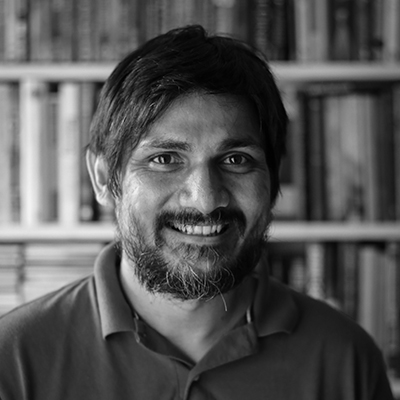In 2010-11, I was part of Writers Bloc, a workshop and festival by the Royal Court Theatre for Indian playwrights. Over the course of a year we were to develop a new full-length play, which would eventually be produced at the festival in early 2012. The first stage of the workshop, which involved a two-week residency with two Royal Court writer-mentors was somewhat confrontational for a lot of the Indian playwrights in my group. There was a strong sense that we were being prescribed not just a particular structural approach to writing but a dangerously reductive conception of what a “contemporary Indian play” should be. One of the first exercises at the residency was to identify a list of “pressing issues” in the country that could serve as thematic fodder for us. It was a disappointingly predictable roster of socio-political concerns that satisfied an easy ethnographic idea of ‘India’. A few days later I expressed my intentions to work on a play about the murder of two journalists and its aftermath on social media, based on an incident in the Philippines. Admittedly, the scenes I wrote as propositions were not very strong but there was also the implication that the subject matter wasn’t speaking enough about contemporary India. Eventually I changed tracks and began to work on a love story between two men set in Delhi and Gurgaon. Here again, I seemed to struggle with an insistence to situate the play within the pulse of queer politics in India, to bring in the High Court judgment on 377 as a significant plot point, and to hold the characters up to stock positions that could be argued out by the play.
The mentors recommended a three-act structural approach to us: ABA*, which can be crudely reduced to – A, the first act that establishes the world of the play; B, the second act in which an event or problem unsettles this world; and A*, the third and final act which involves a resolution that irreversibly alters the world. This was not alien to us but it seemed regressive and constraining. It also denied the plurality of narrative traditions that had influenced each writer in the room. Play-writing in India is decidedly non-conformist, constantly blurring lines between the classical, folk and contemporary. It is perhaps less architectural in its structuring and more musical. So I was a bit stumped when confronted with questions such as “Why is your protagonist not in the first scene?” or “How does this incident help the denouement of your play?” But eventually, the great worth of Writers Bloc was in this tussle to understand the form of our work. To be fair, this was not an exercise against the mentors from the Royal Court but with them and our fellow writers. It was extremely clarifying for all of us to ask difficult questions about what these texts were trying to do (and how) rather than to scrutinise what they were about.
The play I wrote at Writers Bloc was Still and Still Moving+. It is set at two ends of the NCR – Gurgaon and Delhi University and in many ways it’s the first of my plays to directly address the city as a subject. I was living in Gurgaon at the time and I used to take the metro every day to our rehearsal space in Hauz Khas, work for about ten hours and then travel back at night. That part of the metro line had only just been completed and so it was an entirely new experience for the city. The forty minutes I spent on the Yellow Line became my favourite part of the day. I would observe minutely the interaction of people in this forced proximity, and it began to considerably influence my ruminations on time and distance. On a late night train heading home, I saw two labourers standing in this beautiful embrace. They were in vests and torn pants, clinging to each other like lovesick teenagers. It wasn’t an empty compartment but nobody was really looking at them. It almost felt staged somehow, unreal and precious. I stole that moment and recreated it as one of a handful of interludes set in the Delhi metro, which punctuated the love story at the centre of the play.
We have published Still and Still Moving and its Marathi Translation by Ashutosh Potdar in हाकारा। hākārā. Links to the original play and its Marathi translation are given below.
Original play: http://www.hakara.in/neel-chaudhuri-2/ Marathi
Translation: http://www.hakara.in/neel-ashutosh-translation/
Image courtesy: The Tadpole Repertory, New Delhi
Share this:
- Click to share on Facebook (Opens in new window) Facebook
- Click to email a link to a friend (Opens in new window) Email
- Click to share on X (Opens in new window) X
- Click to share on LinkedIn (Opens in new window) LinkedIn
- Click to share on WhatsApp (Opens in new window) WhatsApp
- Click to share on Telegram (Opens in new window) Telegram


